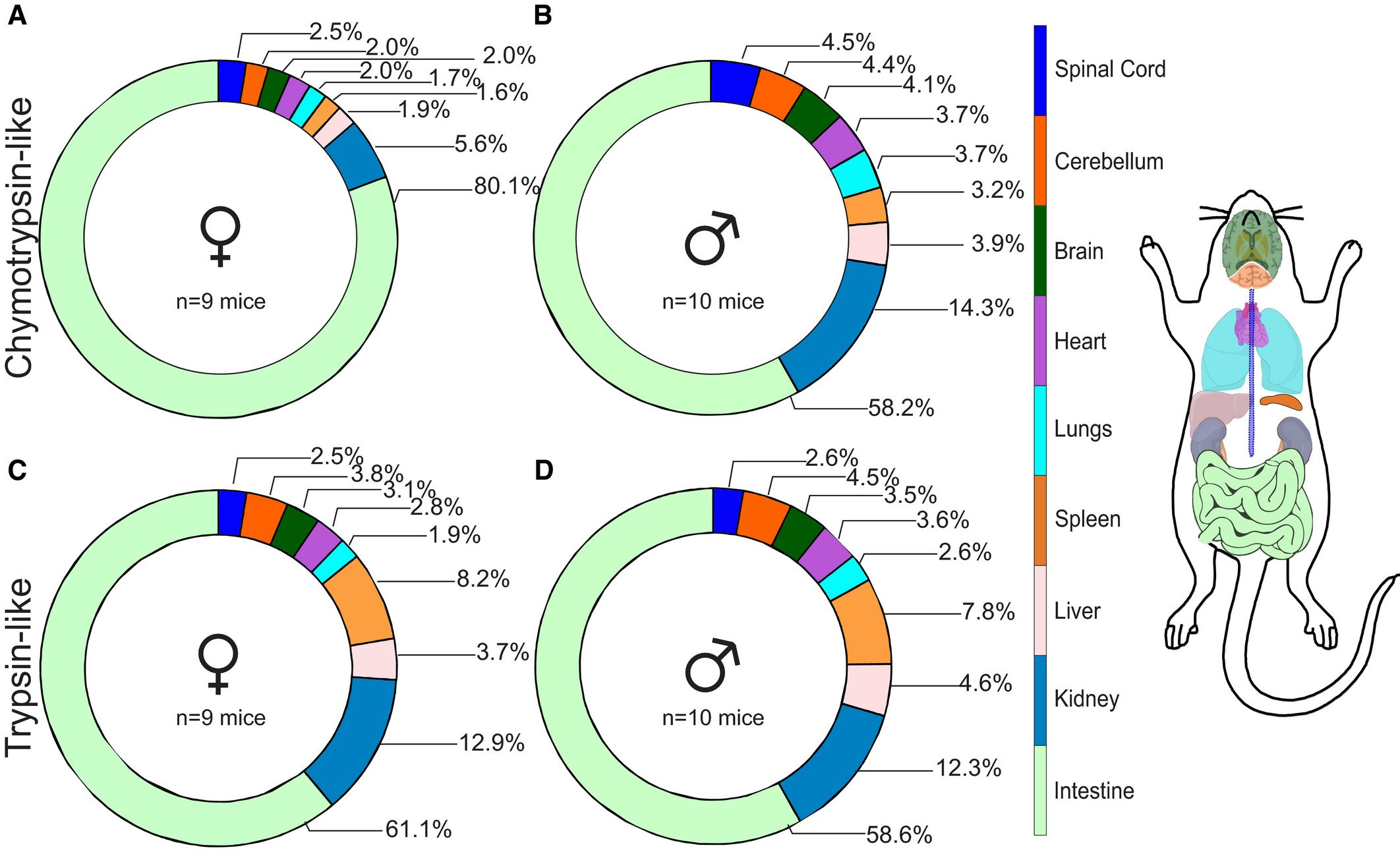The ubiquitin-proteasome cascade is essential for maintaining cellular proteostasis. Defects in these pathways are linked to a number of diseases, including cancer and neurodegeneration. Our lab has performed a comprehensive analysis of the mammalian proteasome activity across nine tissues in both female and male mice. We have shown that there are both sex and tissue specific differences in proteostasis capacity and susceptibility to protein aggregations. We have also demonstrated that age-related changes in proteasome activity are tissue and sex dependent.
We aim to further understand how these differences in proteasome capacity contribute to aging and cancer therapeutic success in the clinic.
Read our recent article at EMBO reports here.

